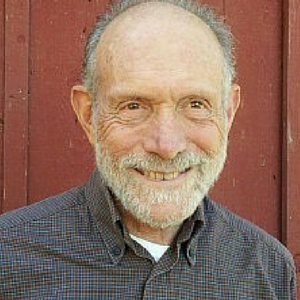by Michael Nagler
In the discourse that plays itself out on the nation’s bumper stickers there is a ‘dialogue’ (or at least a face-off) between two messages. The first, and more familiar, is GOD SAVE AMERICA — not too prominent in West Marin, but we’ve all seen some. The other is the reaction: GOD SAVE THE WHOLE WORLD — NO EXCEPTIONS.
Behind these two stark messages are two entirely different — and incompatible — worldviews. I say incompatible because they are not merely rival positions. The first belongs to the old and (I sincerely hope) dying paradigm of scarcity and competition, the second springs from an emerging paradigm of unity and cooperation. Therefore the ‘bless America (only)’ people do not understand that when we invoke blessings on everyone America is included: yes, America is part of the world. Nobody is saying, for example, ‘God Bless Iran.’ That would only put us all back in the simplistic, dangerous ‘me against you’ confrontation we’re trying to rise above at last.
‘God bless everyone’ implies that there can be a way we can all benefit — that there can be a world without abrasive confrontation and deadly combat, without — dare we say it — winners and losers. Such a wide difference in vision cannot be resolved, of course, by honking when we pass one another on Highway One. The combative style of our political culture means that, unfortunately, there has been no useful dialogue at all between the two communities — and that is what we must address.
Why am I saying this right now? Because a number of Americans were offended when President Obama bowed to King Abdullah of Saudi Arabia. They are clearly of the ‘God bless America’ persuasion, where not just material goods like oil or water but spiritual forces like respect and compassion are forced into their worldview of scarcity, though as we all experience, the more we respect others the more we rise in respect ourselves (and “Injustice anywhere is a threat to justice everywhere,” as Martin Luther King, Jr said from his prison cell in Birmingham in 1963). We should, therefore, appreciate why some individuals were shocked at the President’s gesture — but we should do everything we can to help them be proud of our President for doing such a thing. Look how far he has already brought us: in 1988 when it came to light that the U.S. Cruiser Vincennes had shot down Iran Air Flight 655 over the Persian Gulf, killing all 290 civilian passengers onboard, including 38 non-Iranians and 66 children, Vice President George H. W. Bush stated, “I don’t care what the facts are. I will never apologize for the American people.” Did this blind patriotism not lead us into the regime of spying, torture, and needless war that caused us so much grief and the loss of our global position — even our meaning in history?
President Obama, by contrast, is more like the soon-to-be-President Mandela who publically took the hand of his arch-rival, F.W. deKlerk, and said, “I am proud to hold your hand—for us to go forward together. . . . Let us work together to end division.” And the world applauded (Mandela and de Klerk received the Nobel Peace Prize in 1993). The President has made some decisions that make me cringe, and he will make more; but the one thing beyond doubt is that by being the kind of human being he is he has restored dignity to his office — and every one of us in the process.
Also beyond doubt is that we have to help our narrowly patriotic friends out of their old and almost certainly dying paradigm of win/lose, of scarcity and competition. This will never be done by showing them disrespect (nothing good every comes of showing another person disrespect). As I’ve argued before, we need to reach out to these friends and convince them that we mean them and their America no harm. On the contrary, we’re trying to create the only conditions that will help us all to thrive.![]()









Dearest friend – your wisdom goes on and on – increasing ever more – how much your gifts to us all lend us courage and remind us of the true human compassion to embody. With much aloha – gay F
Yes, Michael. The divide between these ways of thinking sometimes seems to be deepening. I didn’t know the Obama bow had created a stir, but the message of seeking dialogue between these “communities” or ways of thinking is relevant all the time with every issue that comes up. We are culturally conditioned to find differences rather than agreement. I think Obama has recognized this and tried to find another way just as you have described. There is also his approach to the abortion dispute and his outreach to the Muslim and Arab world. Showing respect and seeking common ground can be major tools in building the bridges. Thanks for the thoughtful reminder.
Well done Michael. Nicely put, as ever. And thanks for doing the article in a decent font size. The font size on the previous two articles is too small.